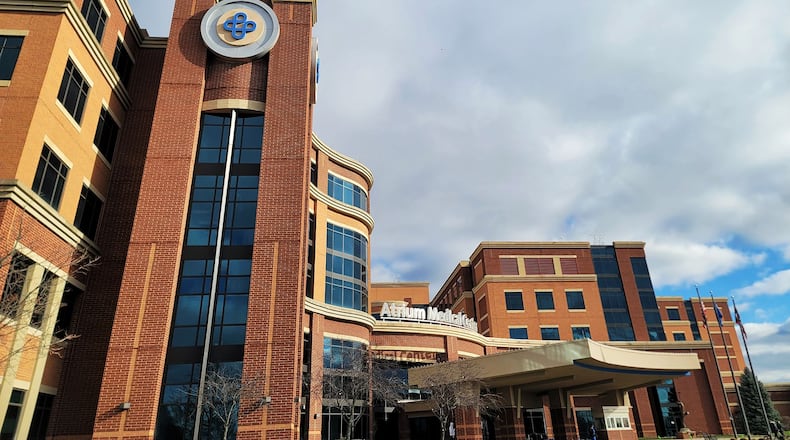The healthcare companies have sharpened their scalpels in a bloody battle for your business.
But two medical networks — Premier Health and the Christ Hospital Health Network — launched a partnership last year with the shared goal of providing more patients in the region access to highly specialized cardiovascular care close to home.
Premier Health officials said the collaboration has significantly increased the availability of specialized treatments for complex cardiovascular diseases, brought more highly skilled cardiothoracic surgeons to the Middletown area, allowing patients to receive world-class care without the need to travel to Dayton or Cincinnati, and strengthened the cardiovascular capabilities at Atrium Medical Center, bringing advanced technology and comprehensive treatment plans.
For instance, Dr. Amer Sayed of Middletown Cardiology Associates has completed procedures at Atrium that had never been done in the area. These procedures are innovative ways to treat heart problems without needing to open up the chest for traditional surgery, he said. They offer quicker recovery times and are often safer for patients who cannot undergo more invasive procedures, according to Sayed.
“The thing about cardiovascular disease is you have to get the care right now,” he said. “Sometimes you don’t have three hours to go somewhere. Time is tissue in cardiology. When you have a heart attack, you need a good doctor right now.”
Deb Kiser, executive lead for both health systems of the joint venture, said the partnership also underscores a commitment to curb the rising costs in healthcare, a challenge felt across the country, focuses on maximizing existing resources without the need for new construction or competing for the limited number of cardiac specialists.
“To be able to provide services to the communities without having to increase capital costs for both organizations,” she said. “It’s like we could do it better together than to compete with each other on a heart and vascular side.”
Dr. Sayed, who specializes in structural heart disease cardiology and interventional cardiology, said the partnership between the two medical networks has allowed a more cohesive, patient-centered approach. He said the benefits of expertise with the joint venture include how physicians across both systems work together to tackle complex cases.
The doctors, regardless of their affiliation, work as a team instead of in silos.
“As a doctor, we really care about the best thing we can offer our patients,” he said while sitting in an office in Middletown Cardiology Associates. “That’s what we studied for, that’s what we dedicated our life for.”
There was a time when patients had limited options for their specialized medical care. That’s not the case today.
“If you don’t give good quality of care, patients will just find a better place,” Sayed said.
He said the team of medical experts, including doctors, researchers, nurses, and technicians, meets weekly for a couple of hours to discuss their patients, certain cases and “bounce ideas” to provide the “best care for our patients.”
Then he added: “Whenever you think you know it all, that’s the time you should probably retire or stop caring, because there’s always more things to learn.”
Kiser believes based on the early success, the two healthcare organizations may form other joint ventures.
“It is very exciting for me... to build that rapport between the two organizations,” she said. “I think that’s still going. And then where we can go in the future is still yet to be determined.”
About the Author

